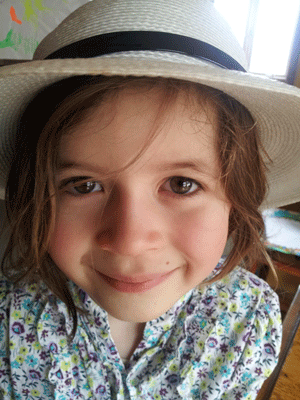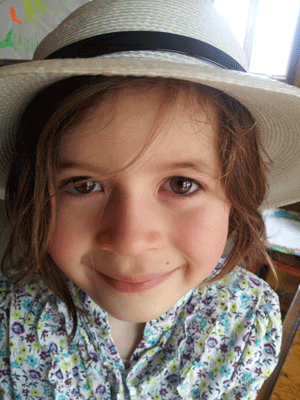 This piece, taken from Jennifer’s 2013 LifeWays paper on “Becoming Worthy of Imitation,” is the first of three installments on “Using Our Voices.”
This piece, taken from Jennifer’s 2013 LifeWays paper on “Becoming Worthy of Imitation,” is the first of three installments on “Using Our Voices.”
My World of Language
When I first discovered my daughter was hiding snug in my tummy, my life changed. As the months progressed, I found myself humming quietly as I prepared for her arrival. I did not seem to notice the drastic changes within myself until I had spent weeks, perhaps months, after the birth staring at her beautiful body and witnessing the life that was continuously transformed in front of me.
As we grew together, I found my own being was blossoming. I unearthed more patience and perseverance than I knew I had, emptied my language of curses, began to work on my negativity, and found my true voice. I even became a singer! Although singing is one of my greatest fears and something I do not find I am particularly good at, becoming a singer for my daughter came naturally and without hesitation. She never judged me, she watched my mouth intently as if to absorb as much of the sound as possible. I have since learned how beneficial song is to the child’s body as they grow. Mary Thienes-Schunemann wrote an article entitled, “Singing Children, Happier Children” in which she articulates this point:
Singing works deeply into our children’s physiology: deepening breath and heart rate, altering brain wave patterns and strengthening the immune system. It also releases endorphins, the body’s pleasure hormones, into the brain and body. Singing also exercises all the muscles in the head and neck, providing the pump action, which empties the Eustachian tubes, helping to keep children free from middle ear infections! Singing can also help to build a child’s confidence and self-esteem, and can increase their capacity for self-expression.
Singing is such a simple thing to bring to my daughter, but the effects are remarkable!
Years have passed, and as I recall our relationship through each one, many of my memories are wrapped around our voices. Constantly, I focus on the correct pronunciation and alter my choice of words when I speak. She has shown me my weaknesses and I can hear myself in her language. She has taken my inner self and woven her being through it, surrounding it with more love and kindness than I have ever experienced.
An important aspect of our voices is found when we experience song together. She loves music and is so intent on capturing the sound as it should be. If I bring to her a new song, it is as if the world pauses around us. She will drop all that she is doing to focus in on my mouth and the melody it is producing. She asks me to repeat the words slowly and carefully so she may grasp them all with her entire body and hold them there to make them her own. I will then hear her sometime in the future sing the song with the full emotion as if she were the songwriter herself! Overhearing a three-year-old sing “Three Little Birds” by Bob Marley as she makes “tea” in her “kitchen” can only put a smile on your face. If I create silence (and see how long I can maintain it), she will sing one song after the other; she will play with the words, rhyming and inventing and enjoying her beautiful discovery of language. How wonderful an environment she creates with her voice and how lucky I am to be a part of it!
Jennifer Sullivan is a LifeWays Certified, Waldorf Teacher-in-Training, Mama of two beautiful girls ages 4-1/2 and 8 months.
